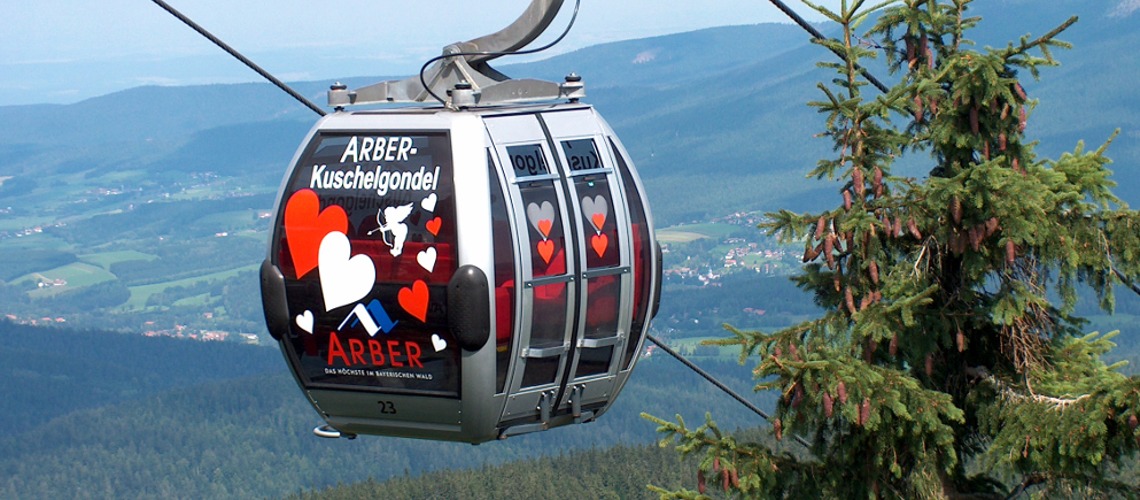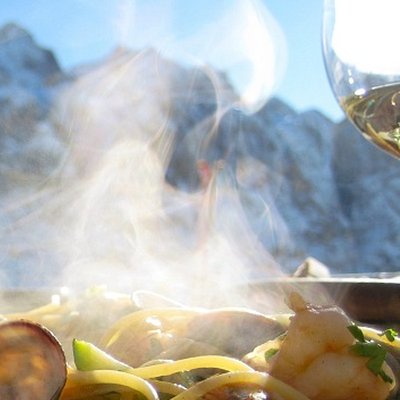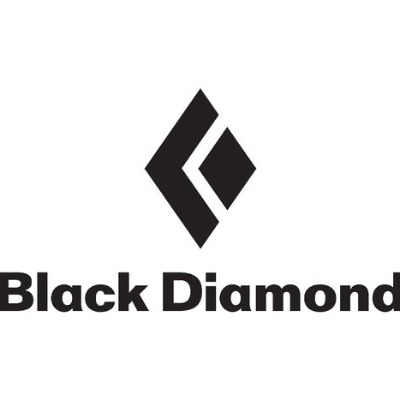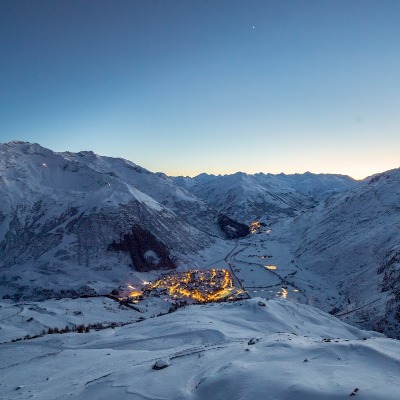Arber Bergbahn To Become Even More Family Friendly

At the valley station, District Administrator Dr. Ronny Raith met with the management of the Princely Hohenzollern Arber Mountain Railway to find out about the current situation and future projects.
Operations manager Thomas Liebl and his two deputies Thomas Eckl and Stefan Beywl first gave an overview of the company. "People associate the Arber mountain railway with skiing in winter and hiking in summer, but there's a little more to our company," explained Eckl. In addition to the mountain railways and slopes on the "King of the Bavarian Forest", the company also operates a ski rental business with 1,500 pairs of skis and six restaurants. The company is the water supplier for its own company, the Brennes district and the state performance center. It is also an energy supplier with two power plants, one in Bayerisch Eisenstein and the other in Arberhütte. The company has a total of 90 permanent employees, and with seasonal workers in winter the workforce rises to 125.
Snowmaking and energy supply
First, the Arber mountain railway team addressed skiing operations. One issue that concerns many people is snowmaking on the slopes. In order to optimize this, a fully automatic snow depth measuring system was purchased in 2017 that delivers data accurate to within three centimeters. "We used to have to rely on our gut feeling when making snow," said Eckl. Now, however, it is precisely defined when, where and how much snow needs to be made. This also protects the terrain, as the measurement allows snow to be made in good time before the grass appears in places with a thin layer of snow. "There is also a pilot project with two machines with lidar sensors that measure the snow depth directly in front of the vehicle," explained Eckl. Mobile laser scanning can avoid double trips, which means a saving of ten percent in snowmaking and fuel for the machines. In addition, 80 percent of the slope area is monitored by cameras so that we can react very quickly in the event of a skiing accident, for example.
As far as the total energy consumption for the ski operation is concerned, according to the operations manager, 330 milliliters of diesel for the machines and 6.5 kilowatt hours of electricity are used per skier. Just over 60 percent of the electricity required is generated by the hydroelectric power plants and a PV system on the Arberseehaus, and the rest is purchased from green electricity. This year, a second PV system is to be added to the roof of the Arber mountain station. For the future, they are also considering a wood chip heating plant to replace the current heating of the buildings with oil and gas. They are also well positioned in the area of digitalization, for example, they have laid fiber optic cables to all buildings and there is also WiFi available, which is also necessary for the snow vehicles.
Offers for summer and families
After an overview of the current situation, District Administrator Dr. Raith asked about the current challenges and future plans of the Arber mountain railway. Operations Manager Liebl emphasized that there are new requirements for both the region and the company in the tourism sector. "We have to become more flexible," he explained, partly because guests on the mountain have become more spontaneous. They often find out a few days before a vacation whether skiing is possible in the Bavarian Forest and, depending on the snow conditions, they either go here or somewhere else entirely where there is guaranteed snow. But even if there is no snow at Christmas, there must be good offers in the region: "We have to offer people something regardless of the weather," said Liebl.
For this reason, they want to set up a family bike park as an additional offer outside of the ski season: "Our target group will be completely different to that at Geißkopf. We want to build something for families with children and also for sprightly pensioners," says Eckl. In a first step, this bike park should be integrated in the area of the Thurnhof drag lifts and conveyor belts. This should also keep the impact on nature as minimal as possible, while at the same time 90 percent of the necessary infrastructure is already in place here. In addition, the whole thing will be designed in such a way that hikers and bikers do not get in each other's way. "We want a clear separation here so that no one feels disturbed," says Liebl. For example, it is planned that cyclists only park in the area of the Thurnhof drag lifts and not at the gondola. Planning for this project is already well advanced and they are working closely and well with the district office and the lower nature conservation authority. The district administrator was pleased with this positive feedback and assured that he would be happy to support the progress of the project: "It is important that we pull together on such important tourism projects," said Raith.
The operations managers also explained that they were considering a simple, family-friendly campsite in the area of the former Sporthotel Brennes. This would round off the offer for families and provide parking spaces for people with mobile homes, "who already often stay overnight in our parking lots," said Eckl. At the same time, the Arber-Bergbahn is keen to retain its employees. Both projects would create opportunities to employ current seasonal workers permanently in the future.
Climate at Arber
Despite the summer offers on the Arber, those present agreed that it would mean a major loss of added value for the region if skiing in the region were no longer possible at some point due to climatic changes. With regard to the Grosser Arber, however, the operations managers were able to give the district administrator the all-clear for the time being. They are in contact with climate researchers and the climatic conditions on the Arber in particular are such that the experts assume that skiing will be possible until 2050. "The conditions here are such that if the mountain were in the Alps, it would be 2000 meters high," they explained the situation. After the final tour of the company buildings, Raith thanked the operations managers Liebl, Eckl and Beywl for the exciting insights into the company and its future plans.













